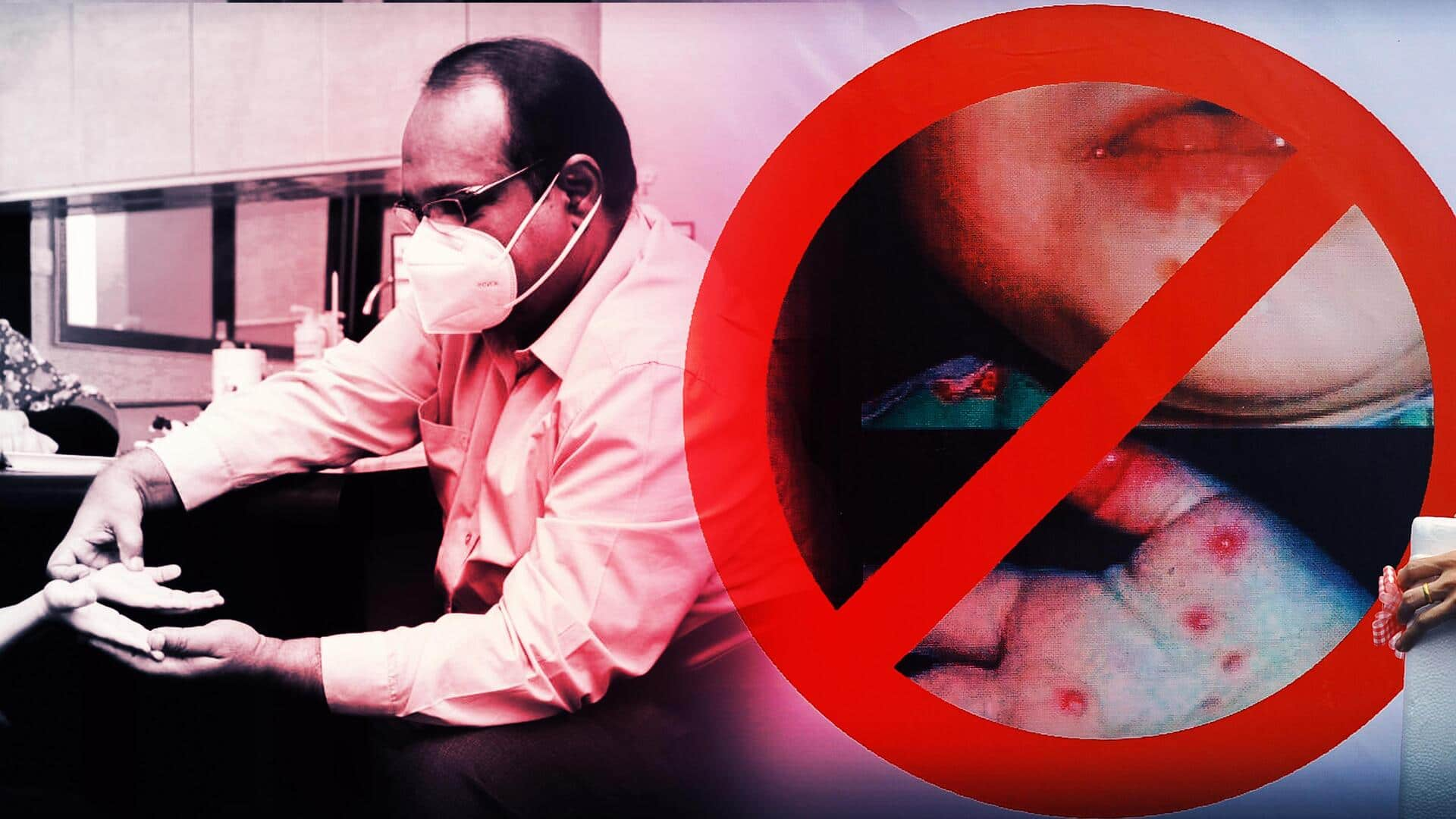
Increase in hand-foot-and-mouth disease cases in Delhi: What is it
What's the story
Doctors in Delhi have reported a significant surge in cases of hand-foot-and-mouth disease (HFMD) among young children. The monsoon season is believed to be a contributing factor to this increase. Dr Krishan Chugh, Principal Director and HOD, Paediatrics, Fortis Memorial Research Institute, Gurugram, told news agency IANS that they are witnessing four to five HFMD cases daily.
Disease details
What are the symptoms
HFMD is a common viral illness that primarily affects infants and young children. The symptoms are fever, sore throat, mouth sores, and a rash on the hands and feet. The disease is particularly prevalent among children aged one to seven. It's caused by various enteroviruses with Coxsackievirus A16 and Enterovirus 71 being the most common culprits.
HFMD impact
Potential complications
HFMD typically begins with a fever and sore throat, followed by painful sores or blisters appearing in the mouth, on the palms of the hands, and soles of the feet. These symptoms can make eating and drinking difficult for affected children. In some cases—particularly with Enterovirus 71—HFMD can lead to severe complications such as viral meningitis or encephalitis. The virus spreads easily through close personal contact, respiratory droplets from coughing or sneezing, and contact with contaminated surfaces or feces.
Disease management
Treatment and prevention of HFMD
Dr Atul Gogia, senior consultant and head of Infectious Diseases at Sir Ganga Ram Hospital, explained that HFMD is usually self-limiting and settles in about two weeks. "Treatment is most symptomatic and prevention is to avoid close contact and respiratory isolation," he said. Dr Poonam Sidana, Director- Neonatology & Paediatrics at the CK Birla Hospital, Delhi, added that the hot and humid weather creates an ideal environment for the virus to thrive, leading to an increase in cases.
Disease misnomer
Misleading term 'tomato fever'
In recent days, there have been reports from Kerala of an epidemic sickness known as tomato fever. However, doctors clarified that this is a misleading term and is actually HFMD. Chugh urged parents and caregivers to be vigilant. "It's crucial to be aware of the symptoms, which include fever, mouth sores or blisters, and a rash on the hands and feet. We urge parents to seek immediate medical attention if they suspect their child has HFMD," he said.